Find Help
More Items From Ergsy search
-
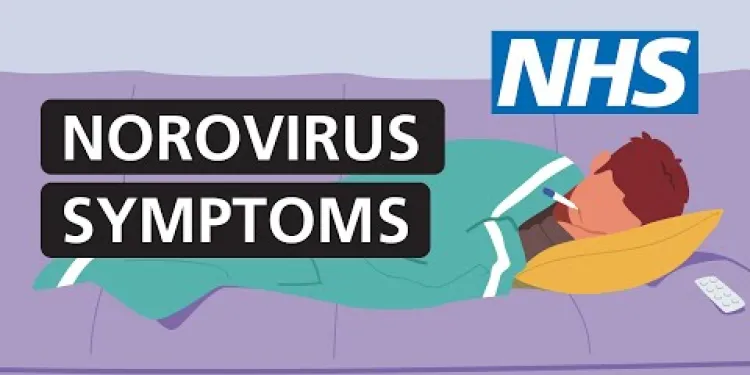
What is norovirus? (Diarrhoea and vomiting bug) | NHS
Relevance: 100%
-
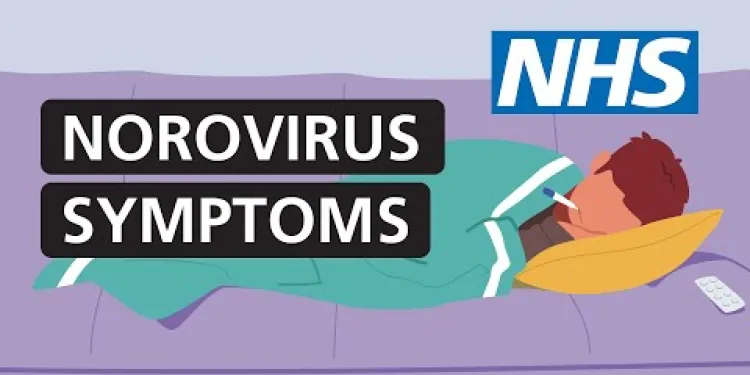
What is norovirus? (Diarrhoea and vomiting bug) | NHS
Relevance: 96%
-
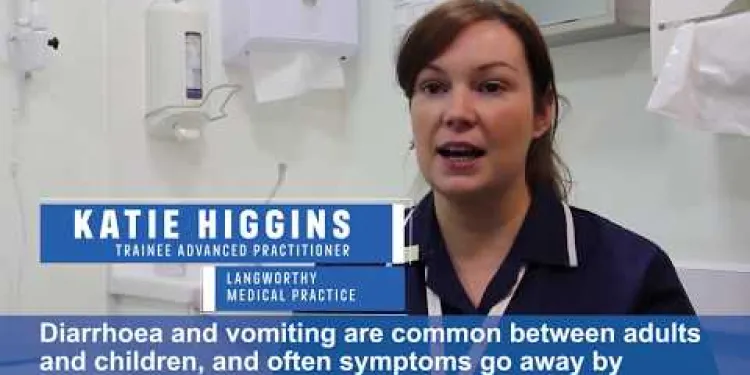
Advice for diarrhoea and vomiting
Relevance: 84%
-

My child has vomiting and diarrhoea - what do I do?
Relevance: 74%
-

What are the symptoms of norovirus?
Relevance: 65%
-
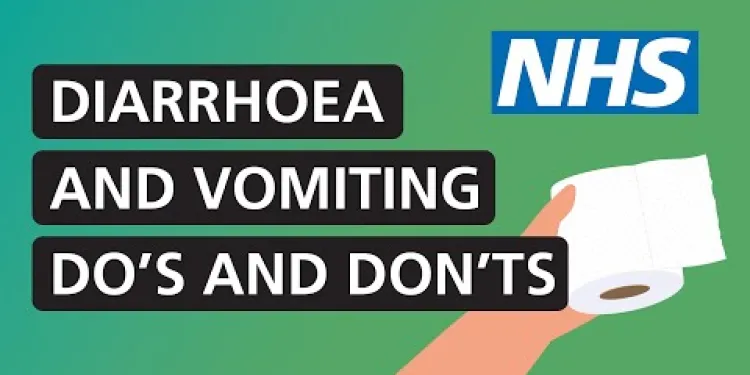
How to treat diarrhoea and vomiting at home (adults and children aged 5 and over) | NHS
Relevance: 63%
-

Can antibiotics treat norovirus?
Relevance: 62%
-

How common is norovirus in the UK?
Relevance: 61%
-

What should I do if I have norovirus?
Relevance: 60%
-

When should I seek medical advice for norovirus?
Relevance: 59%
-

Is there a vaccine for norovirus?
Relevance: 57%
-

How long do norovirus symptoms last?
Relevance: 57%
-

Can I go to work or school if I have norovirus?
Relevance: 57%
-

How is norovirus spread?
Relevance: 56%
-

How can I prevent norovirus infection?
Relevance: 56%
-

Can I get norovirus more than once?
Relevance: 55%
-

What should I eat or drink if I have norovirus?
Relevance: 51%
-

Where can I find more information about norovirus?
Relevance: 46%
-

Diarrhoea - How to stop it? | UHL NHS Trust
Relevance: 39%
-

What are common side effects of Wegovy?
Relevance: 26%
-

Can Ozempic lead to dehydration?
Relevance: 22%
-

What are common side effects of Ozempic?
Relevance: 22%
-
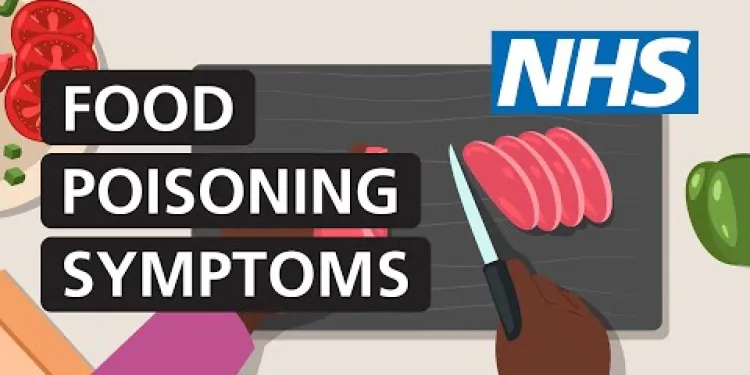
How to tell if you have food poisoning (symptoms) | NHS
Relevance: 21%
-

What are the common symptoms of appendicitis?
Relevance: 21%
-

How is norovirus diagnosed?
Relevance: 21%
-

What are the common side effects of Ozempic?
Relevance: 21%
-

Are there any common side effects of Mounjaro?
Relevance: 20%
-
What happens if I overdose on Ozempic?
Relevance: 19%
-

What are the symptoms of Bacillus cereus food poisoning?
Relevance: 19%
-

Can Ozempic cause severe gastrointestinal issues?
Relevance: 18%
-

What are common side effects of antibiotics?
Relevance: 17%
-

What are the side effects of bowel cancer treatment?
Relevance: 17%
-

What are the symptoms of Super Flu?
Relevance: 17%
-

Can E. coli infections be treated?
Relevance: 17%
-

What problems is Ozempic known to cause?
Relevance: 17%
-
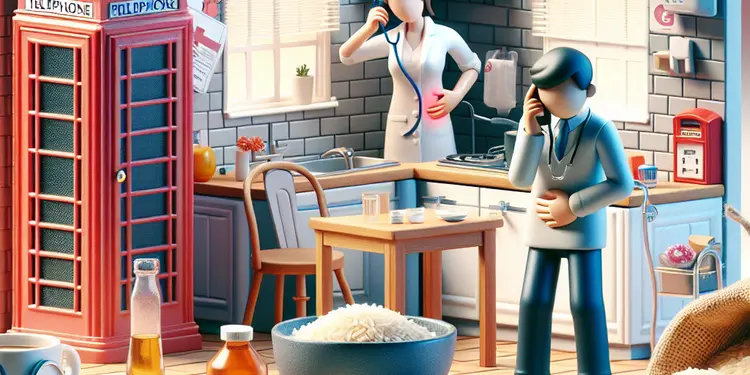
What should I do if I suspect food poisoning from rice?
Relevance: 17%
-

What are the common symptoms of Crohn's disease?
Relevance: 16%
-

Are there any gastrointestinal side effects from weight loss medications?
Relevance: 16%
-

Are there any serious risks associated with Ozempic?
Relevance: 16%
-

Can E. coli cause illness?
Relevance: 16%
What is Norovirus? (Diarrhoea and Vomiting Bug) | NHS
Introduction to Norovirus
Norovirus, often referred to as the "winter vomiting bug", is a highly contagious virus that causes gastroenteritis, which is an inflammation of the stomach and intestines. This leads to sudden onset of severe vomiting and diarrhoea. It is a common cause of foodborne illness in the United Kingdom, especially in the colder months.Symptoms of Norovirus
Individuals infected with norovirus may experience:- Sudden onset of nausea
- Violent vomiting
- Watery diarrhoea
- Abdominal cramps
- Low-grade fever, headache, and aching limbs in some cases
Transmission of Norovirus
Norovirus is highly contagious and can be spread in several ways:- Direct contact with an infected person
- Consuming contaminated food or water
- Touching surfaces or objects contaminated with the virus and then touching the mouth
Prevention and Treatment
There is no specific treatment for norovirus, but the following measures can ease symptoms and prevent the spread:- Drink plenty of fluids to avoid dehydration
- Maintain good hand hygiene by washing hands thoroughly with soap and water
- Disinfect surfaces with a bleach-based cleaner
- Stay home from work, school, or public places until at least 48 hours after symptoms have ceased
- Avoid preparing food for others while symptomatic
When to Seek Medical Advice
While norovirus is usually self-limiting, seek medical attention if:- Symptoms persist for more than a few days
- You notice signs of severe dehydration, such as reduced urination, dry mouth, and dizziness
- There is blood in stools or vomit
- The affected individual is a young child, elderly, or has underlying health conditions
What is Norovirus? (Diarrhoea and Vomiting Bug) | NHS
Introduction to Norovirus
Norovirus, commonly referred to as the "winter vomiting bug," is a highly contagious virus that causes gastroenteritis, an inflammation of the stomach and intestines. Common symptoms include sudden onset of severe vomiting and diarrhea. Norovirus can affect individuals of all ages and is known for spreading quickly, particularly in communal environments such as schools, hospitals, and care homes.
Symptoms of Norovirus
The primary symptoms of norovirus infection include:
- Sudden onset of nausea
- Projectile vomiting
- Watery, non-bloody diarrhea
- Stomach cramps and pain
Other possible symptoms include fever, headache, and body aches. Symptoms usually appear 12 to 48 hours after exposure and typically last for one to three days. However, even after symptoms subside, individuals can remain contagious for up to two weeks.
How Norovirus Spreads
Norovirus is highly contagious and can spread through various means, including:
- Direct contact with an infected person
- Touching surfaces or objects contaminated with the virus
- Consuming contaminated food or water
Due to its stable nature, norovirus can survive on surfaces for days, making thorough cleaning and proper hygiene essential to prevent outbreaks.
Prevention and Control
To minimise the risk of contracting or spreading norovirus, the NHS recommends the following preventive measures:
- Wash hands frequently with soap and water, especially after using the restroom and before eating or preparing food.
- Disinfect surfaces and objects that may be contaminated, particularly in households or facilities experiencing an outbreak.
- Avoid consuming food prepared by someone who is or has recently been ill.
- Stay home if you experience symptoms of norovirus to prevent spreading the illness to others.
Treatment and Care
There is no specific treatment for norovirus; however, staying hydrated is crucial. Drink plenty of fluids to replace lost fluids from vomiting and diarrhea. Oral rehydration solutions can be effective, especially for vulnerable populations such as the elderly and young children. If symptoms are severe or persist for more than a few days, seek medical advice from your GP or NHS 111.
Conclusion
Norovirus is a common yet highly contagious virus that causes vomiting and diarrhea. Practising good hygiene, staying informed, and taking preventive measures can significantly reduce the risk of infection. If you suspect you have norovirus, it is essential to stay at home, maintain hydration, and follow NHS guidelines to manage symptoms and prevent further spread.
What is Norovirus? (Diarrhoea and Vomiting Bug)
Introduction to Norovirus
Norovirus, often referred to as the "winter vomiting bug," is a highly contagious virus that causes gastroenteritis. It leads to inflammation of the stomach and intestines, resulting in symptoms like diarrhoea, vomiting, and stomach pain. Although it can strike at any time, it is more common during the colder months, hence the nickname.
Symptoms of Norovirus
Norovirus symptoms typically appear 12 to 48 hours after exposure and can last for up to three days. Common symptoms include:
- Sudden onset of nausea
- Violent vomiting
- Watery diarrhoea
- Fever or high temperature
- Abdominal pain and cramps
- Headache and aching limbs
Though these symptoms can be quite severe, they generally resolve on their own. However, dehydration can be a risk, especially in young children, the elderly, and those with weakened immune systems.
Transmission and Prevention
Norovirus spreads very easily and can be transmitted through:
- Direct contact with an infected person
- Touching contaminated surfaces and then touching your mouth
- Consumption of contaminated food or water
To prevent the spread of norovirus, it is essential to practice good hygiene. This includes:
- Washing hands thoroughly with soap and water, especially after using the toilet and before eating or preparing food
- Cleaning and disinfecting surfaces and objects that may be contaminated
- Washing any contaminated clothing and bedding using detergent at a high temperature
- Staying home when experiencing symptoms to avoid infecting others
Treatment and Care
There is no specific treatment for norovirus, and antibiotics are ineffective as it is a viral infection. Key recommendations include:
- Staying hydrated: Drink plenty of fluids to replace those lost through vomiting and diarrhoea. Oral rehydration solutions available at pharmacies can be particularly helpful.
- Resting: Allow your body to recover by getting plenty of rest.
- Avoiding solid food initially: Start with clear liquids and gradually reintroduce bland foods as you feel better.
If you or someone you care for is unable to keep fluids down, has severe symptoms, or is at risk of dehydration, it is important to seek medical advice. In the UK, you can contact your GP or call NHS 111 for guidance.
What is Norovirus? (Diarrhoea and Vomiting Bug) | NHS
What is Norovirus?
Norovirus is a virus that makes your tummy very upset. It can give you a bad tummy ache, make you vomit, and give you diarrhea. People often call it the "winter vomiting bug". It spreads fast, especially when it’s cold outside.What Are the Signs of Norovirus?
If you have norovirus, you might:- Feel sick suddenly
- Vomit a lot
- Have runny poop (diarrhea)
- Get tummy cramps
- Have a mild fever, headache, or aching muscles
How Do You Catch Norovirus?
Norovirus spreads very easily:- Touching someone who has the virus
- Eating food or drinking water with the virus
- Touching things with the virus, then touching your mouth
How Can You Prevent and Treat It?
There is no special medicine for norovirus, but you can help yourself feel better:- Drink lots of water
- Wash your hands with soap and water regularly
- Clean surfaces with bleach
- Stay home until you feel better and your symptoms are gone for 2 days
- Do not cook for others when you are sick
When Should You See a Doctor?
Norovirus usually goes away by itself, but see a doctor if:- You feel sick for more than a few days
- You are very thirsty, have a dry mouth, or feel dizzy (signs of dehydration)
- You see blood in your vomit or poop
- The person who is sick is very young, old, or already has health problems
What is Norovirus? (Diarrhoea and Vomiting Bug) | NHS
Introduction to Norovirus
Norovirus is a virus. People often call it the "winter vomiting bug." It makes your stomach and intestines upset. This can cause sudden vomiting and diarrhea. It spreads easily, especially in places like schools and hospitals.
Symptoms of Norovirus
Signs you might have norovirus include:
- Feeling sick all of a sudden
- Throwing up a lot
- Watery poop (diarrhea)
- Pain or cramps in your tummy
You might also get a fever, headache, or body aches. These symptoms can show up 12 to 48 hours after you catch the virus. They usually last 1 to 3 days, but you can still make others sick for up to two weeks.
How Norovirus Spreads
Norovirus spreads very easily. It can spread by:
- Touching someone who is sick
- Touching things that have the virus on them
- Eating or drinking things with the virus
The virus can stay on things for days. Cleaning well and washing your hands helps stop it from spreading.
Prevention and Control
To avoid getting or spreading norovirus, try to:
- Wash your hands with soap and water often, especially after using the toilet and before eating.
- Clean surfaces with disinfectant, especially if someone in your home is sick.
- Don't eat food made by someone who is sick.
- Stay home if you feel sick so you don't spread it to others.
Treatment and Care
There isn't a specific medicine for norovirus. You should drink lots of water to stay hydrated. If you have a lot of diarrhea or vomiting, special drinks, called oral rehydration solutions, can help you stay hydrated. They are very helpful for older people and young children. If you feel very sick or if it lasts more than a few days, call your doctor or NHS 111.
Conclusion
Norovirus is common and spreads easily. It causes vomiting and diarrhea. You can lower the risk by practicing good hygiene and taking care of yourself. If you think you have norovirus, stay home, drink fluids, and follow the guidance from the NHS to feel better and stop it from spreading to others.
What is Norovirus? (Diarrhoea and Vomiting Bug)
Introduction to Norovirus
Norovirus is also known as the "winter vomiting bug." It is a virus that makes people sick, causing stomach and gut problems. This can lead to diarrhoea, throwing up, and stomach aches. People can catch it any time, but it often happens in the winter.
Symptoms of Norovirus
Signs of norovirus show up 12 to 48 hours after catching it and can last up to three days. Symptoms include:
- Feeling sick suddenly
- Throwing up a lot
- Watery diarrhoea
- High temperature or fever
- Belly pain
- Headache and sore muscles
These symptoms can be strong but usually go away on their own. Drinking lots of water is important, especially for kids, older people, and those who are very weak, to avoid dehydration.
Transmission and Prevention
Norovirus spreads easily. You can catch it by:
- Being close to someone who's sick
- Touching dirty surfaces and then touching your mouth
- Eating or drinking things that are not clean
To stop the virus from spreading, you should:
- Wash your hands well with soap and water, especially after using the toilet and before making or eating food
- Clean surfaces and things that might be dirty
- Wash clothes and sheets with hot water and soap
- Stay at home if you are sick so you do not spread the virus to others
Treatment and Care
There is no special medicine for norovirus, and antibiotics do not work. Here are some tips to feel better:
- Drink lots of water to stay hydrated. Oral rehydration solutions from the pharmacy can help.
- Rest a lot so your body can heal.
- Start with drinking clear liquids before eating soft foods when you feel better.
If you, or someone you look after, can't drink, has bad symptoms, or might get dehydrated, talk to a doctor. In the UK, you can call your GP or NHS 111 for help.
Frequently Asked Questions
What is norovirus?
Norovirus is a highly contagious virus that causes vomiting and diarrhea. It is also known as the 'winter vomiting bug'.
How does norovirus spread?
Norovirus spreads through close contact with an infected person, touching contaminated surfaces, or consuming contaminated food or water.
What are the symptoms of norovirus?
Symptoms of norovirus include sudden onset of nausea, vomiting, watery diarrhea, and abdominal cramps. Some people may also experience fever, headache, or aching limbs.
How long do norovirus symptoms last?
Symptoms usually last for 1 to 3 days, but some people may feel weak and fatigued for a few days after symptoms have ended.
When should I seek medical help for norovirus?
Most people recover within a few days without medical treatment. However, you should seek medical help if you have severe dehydration, cannot keep any fluids down, or have symptoms that last longer than a few days.
How can I prevent norovirus infection?
You can prevent norovirus by washing your hands frequently with soap and water, disinfecting contaminated surfaces, washing fruits and vegetables, cooking seafood thoroughly, and staying home when you are sick.
What should I do if I've been infected with norovirus?
If you are infected with norovirus, stay home, rest, drink plenty of fluids to prevent dehydration, and avoid preparing food for others until at least 48 hours after your symptoms have stopped.
Can norovirus be serious?
Norovirus can be serious, especially for young children, elderly people, and those with weakened immune systems, as it can lead to severe dehydration.
Is there a vaccine for norovirus?
Currently, there is no vaccine available to prevent norovirus infection.
Can I get norovirus more than once?
Yes, you can get norovirus more than once because there are many different strains of the virus and immunity after infection is usually temporary.
How is norovirus diagnosed?
Norovirus is usually diagnosed based on the symptoms. In some cases, stool tests may be conducted to confirm the diagnosis.
Why is norovirus more common in the winter?
Norovirus is more common in winter because people tend to spend more time indoors in close proximity, which makes it easier for the virus to spread.
Can I go to work if I have norovirus?
No, you should stay home from work to avoid spreading the virus to others. You should remain at home until at least 48 hours after your symptoms have stopped.
How do hospitals control the spread of norovirus?
Hospitals control the spread of norovirus by isolating infected patients, implementing strict hand hygiene practices, and thoroughly disinfecting contaminated areas.
Is norovirus the same as food poisoning?
Norovirus can cause food poisoning if food is contaminated with the virus, but not all food poisoning is caused by norovirus. Food poisoning can also be caused by bacteria, other viruses, or toxins.
What is norovirus?
Norovirus is a highly contagious virus that causes gastroenteritis, leading to symptoms like diarrhoea and vomiting. It is often referred to as the 'winter vomiting bug'.
What are the common symptoms of norovirus?
The common symptoms of norovirus include sudden onset of severe vomiting, watery diarrhoea, nausea, and stomach cramps. Some people may also experience a slight fever, headaches, and aching limbs.
How is norovirus spread?
Norovirus can be spread through direct contact with an infected person, consuming contaminated food or water, or touching contaminated surfaces and then touching your mouth.
How long do the symptoms of norovirus last?
Symptoms of norovirus typically last for 1 to 3 days, but some people may feel unwell for longer.
Is there a treatment for norovirus?
There is no specific treatment for norovirus. The illness usually resolves on its own. It is important to stay hydrated by drinking plenty of fluids to prevent dehydration.
How can I prevent getting norovirus?
Good hygiene practices, such as frequent hand washing with soap and water, disinfecting contaminated surfaces, and washing fruits and vegetables before eating, can help prevent the spread of norovirus.
Can you build immunity to norovirus?
It is possible to develop temporary immunity to a strain of norovirus, but this immunity is usually short-lived and does not provide protection against other strains.
Can norovirus be serious?
In most cases, norovirus is not serious and the symptoms can be managed at home. However, it can be more severe in young children, the elderly, and people with weakened immune systems due to the risk of dehydration.
When should I seek medical help for norovirus?
You should seek medical help if you are unable to keep fluids down for more than 24 hours, have symptoms of severe dehydration like dry mouth and dizziness, have bloody diarrhoea, or if your symptoms do not improve after a few days.
Is norovirus more common in winter?
Yes, norovirus is more common in winter, which is why it's often called the 'winter vomiting bug'. However, it can occur at any time of the year.
Can norovirus be spread through food?
Yes, norovirus can be spread through contaminated food. This often happens when food is handled by someone infected with the virus.
How long does norovirus remain contagious?
Norovirus can remain contagious from the moment you start feeling ill to at least 48 hours after your symptoms have stopped.
Should I go to work or school if I have norovirus?
No, you should stay at home and avoid going to work or school for at least 48 hours after your symptoms have stopped to avoid spreading the virus to others.
Can norovirus be prevented with a vaccine?
Currently, there is no vaccine available to prevent norovirus.
What should I do if someone in my household has norovirus?
If someone in your household has norovirus, you should maintain good hygiene practices, clean and disinfect surfaces regularly, and ensure the infected person stays hydrated. Avoid sharing towels and other personal items.
What is norovirus?
Norovirus, also known as the winter vomiting bug, is a highly contagious virus that causes vomiting and diarrhoea.
How is norovirus spread?
Norovirus is spread through contact with infected individuals, contaminated surfaces, or consuming contaminated food or water.
What are the symptoms of norovirus?
Symptoms include sudden onset of nausea, vomiting, watery diarrhoea, and abdominal cramps. Some people may also experience a mild fever, headaches, and aching limbs.
How long do norovirus symptoms last?
Symptoms typically last between 24 to 48 hours but can sometimes last a bit longer.
Can norovirus be dangerous?
While unpleasant, norovirus generally isn't dangerous. However, it can lead to dehydration, especially in young children, older adults, and those with weakened immune systems.
Is there a treatment for norovirus?
There is no specific treatment for norovirus. It usually goes away on its own. The best way to deal with it is to stay hydrated and rest.
How can I prevent getting norovirus?
Good hygiene practices like washing hands thoroughly, disinfecting surfaces, and handling food safely can help prevent the spread of norovirus.
What should I do if I think I have norovirus?
Stay at home, drink plenty of fluids to avoid dehydration, and practise good hygiene to prevent spreading the virus to others.
When should I call a doctor if I have norovirus symptoms?
Seek medical advice if your symptoms are severe, you have underlying health conditions, or are unable to keep fluids down.
Can I go to work with norovirus?
No, you should stay at home for at least 48 hours after your symptoms have stopped to prevent spreading the virus to others.
How can I help prevent the spread of norovirus at home?
Disinfect surfaces, wash bedding and clothing contaminated by vomit or faeces, and wash your hands frequently.
Are there any foods to avoid with norovirus?
Avoid rich, spicy, or fatty foods which can aggravate your stomach. Stick to plain foods like toast, rice, and bananas.
Can you get norovirus more than once?
Yes, it's possible to get norovirus multiple times as there are many different strains of the virus.
How is norovirus diagnosed?
Norovirus is usually diagnosed based on the symptoms. In some cases, a stool sample might be tested to confirm the presence of the virus.
Can norovirus survive on surfaces?
Yes, norovirus can survive on surfaces for several days. Cleaning with bleach-based disinfectant can help kill the virus.
What is norovirus?
Norovirus is a type of germ that can make you feel very sick. It can make your tummy hurt, give you diarrhea, or make you throw up.
Wash your hands often with soap and water to help stay safe from norovirus. Telling someone, like a grown-up, can help if you feel sick.
Norovirus is a virus that spreads easily. It makes people sick with throwing up and diarrhea. People also call it the 'winter vomiting bug'.
How does norovirus spread?
Norovirus is a bug that makes people sick. It can spread easily from one person to another. Here is how it happens:
- Touching: You can catch the virus if you touch things that have the virus on them and then touch your mouth.
- Eating: If you eat food with the virus on it, you can get sick.
- Being close to sick people: When people are sick, the virus can be in the air. If you are near someone sick, you might breathe it in.
To stay healthy, wash your hands often, especially after using the toilet and before eating. Also, clean surfaces that might have the virus on them.
Norovirus is a germ that makes people sick. It spreads in these ways:
- Being close to someone who is sick.
- Touching things that have the germ on them.
- Eating food or drinking water with the germ in it.
Here’s what you can do to stay safe:
- Wash your hands with soap and water.
- Clean surfaces with sanitizer.
- Be careful with food and water. Make sure they are safe.
What happens if you catch norovirus?
Signs of having norovirus are feeling sick, throwing up, having diarrhea that is watery, and having a tummy ache. Some people might also get a fever, headache, or sore arms and legs.
How long do norovirus symptoms last?
Norovirus is a bug that makes your tummy sick. It can make you feel bad for a few days.
Here's what you need to know:
- Most people feel sick for 1 to 3 days.
- Sometimes it can last longer, but it usually gets better pretty quickly.
Here are some ways to feel better:
- Drink lots of water or drinks with vitamins.
- Rest and take naps if you feel tired.
- Eat simple foods like bananas, toast, or rice.
If you are still feeling sick after 3 days, tell a grown-up or see a doctor.
Most people feel better in 1 to 3 days. But some people might feel tired for a few more days after that.
When should I ask a doctor for help with norovirus?
Most people feel better in a few days without needing a doctor. But if you feel very thirsty, can't drink anything, or still feel sick after a few days, you should see a doctor.
How can I stop getting sick from norovirus?
You can stop norovirus from spreading by doing these things:
- Wash your hands a lot with soap and water.
- Clean surfaces that might be dirty.
- Wash fruits and veggies.
- Cook seafood all the way through.
- Stay home if you feel sick.
Tools can help you, like setting reminders to wash hands, or using checklists to clean surfaces.
What to Do If You Have Norovirus
If you think you have norovirus, follow these steps:
- Rest: Lie down and take it easy.
- Drink Water: Sip lots of water so you don't get dehydrated.
- Eat Little Meals: Have small, simple foods like soup or toast.
- Wash Your Hands: Keep your hands clean to stop spreading germs.
- Ask for Help: Tell an adult or caregiver how you feel.
If you need help reading, you can:
- Use a reading ruler to keep your place.
- Ask someone to read with you.
- Use audiobooks or text-to-speech software.
If you have norovirus, stay at home. Rest and drink lots of water. This helps you not get too thirsty. Don't make food for other people until 48 hours after you feel better.
Can norovirus be dangerous?
Norovirus is a virus that can make you feel very sick. Most people get better in a few days. But sometimes, it can be serious, especially for young children, older people, and people who are already sick.
If you or someone you know is very sick, you should tell a doctor.
You can use tools like a calendar to keep track of how long you've been sick, or ask someone you trust to help you look after yourself.
Norovirus can make some people really sick. It can be bad for young children, older people, and people who are not very strong. It can make you lose a lot of water from your body.
Is there a vaccine for norovirus?
No, there is no vaccine for norovirus yet.
Norovirus can make your tummy hurt and give you diarrhea. It can spread easily from one person to another. Washing hands often is a good way to stop getting sick.
If you are not sure, you can talk to a doctor or nurse for more help. You can also read easy books or watch videos about staying healthy.
Right now, there is no shot to stop people from getting sick with norovirus.
Can I catch norovirus again?
Yes, you can get norovirus more than once. Norovirus is a bug that can make you feel sick. It's like a bad stomach ache with throwing up and getting the runs.
Your body tries to fight norovirus, but it doesn't remember the bug very long. So you can catch it again later.
To help stop getting sick again, wash your hands often with soap and water. Keep things clean around you.
Parents or caregivers can help kids with reminders to wash hands and clean surfaces. You can also practice with a timer to make sure washing takes at least 20 seconds.
Yes, you can catch norovirus more than once. This is because there are many kinds of norovirus. After you get better, you do not stay protected forever.
How do doctors know if you have norovirus?
Norovirus can make your tummy feel bad. A doctor can tell if you have it by asking questions about how you feel. They might ask if you feel sick or have been throwing up.
Sometimes, the doctor may check your poo. This means looking at a sample to see if the virus is there.
To help understand what the doctor says, you can bring someone with you or write down what you want to ask.
Doctors can tell if you have norovirus by looking at how you feel. Sometimes, they might need to check your poo to be sure.
Why do more people get norovirus in winter?
Norovirus spreads a lot during winter. This is because people stay indoors and close to each other. This makes it easier for the virus to spread.
You can use some tools to make reading easier. Try using a ruler or your finger to follow along the text.
Can I go to work if I have norovirus?
If you have norovirus, it is best not to go to work. Norovirus can make you feel very sick. It can also spread easily to other people.
Instead of going to work, stay at home and rest. Drink lots of water so you do not get too thirsty.
Wait at least 48 hours after you feel better before going back to work.
You can use reminders to wash your hands a lot, to stop spreading germs.
No, you should stay at home and not go to work. This helps to stop the virus from spreading to other people. Stay at home until you feel better, and wait for at least 2 days after your symptoms are gone.
You can use reminders to help you keep track of your symptoms. Writing down how you feel each day can be helpful too. Talking to a friend or using a smartphone app for support can make it easier to stay at home.
How do hospitals stop norovirus from spreading?
Hospitals do many things to stop norovirus from spreading:
- They clean everything very well.
- Doctors and nurses wash their hands often.
- They use special soap and water.
- They tell sick people to stay in their rooms.
- They wear gloves and masks.
- They teach everyone to cover their mouths when they sneeze or cough.
If you want help to understand or remember these tips, you can:
- Use pictures to help explain the steps.
- Ask someone to read it with you.
- Remember to ask questions if you're not sure.
Hospitals stop the spread of norovirus by keeping sick patients away from others, making sure everyone washes their hands very well, and cleaning areas really well that have germs.
Is norovirus the same as food poisoning?
Norovirus and food poisoning are not exactly the same. Norovirus is a type of virus that can make your stomach feel very sick. It can cause throwing up and diarrhea.
Food poisoning happens when you eat food that has bad germs in it. These germs can be bacteria, viruses like norovirus, or other tiny things that make you sick.
So, norovirus can cause food poisoning, but not all food poisoning is from norovirus.
If you find it hard to understand, you can:
- Ask someone to read it with you.
- Use a dictionary to check words you don’t know.
- Look for pictures online that show how norovirus and food poisoning work.
Norovirus is a virus that can make people sick if it gets into their food. But norovirus is not the only thing that can make food go bad. Bacteria, other viruses, and toxins can also cause food to make people sick.
What is norovirus?
Norovirus is a germ. It makes people sick. It can give you a tummy ache and make you throw up. You can also have diarrhea. It spreads easily. Wash your hands to stay safe.
Here are some tips to help you:
- Wash hands with soap and water
- Keep your home clean
- Use pictures or videos to understand more
Norovirus is a germ that spreads easily. It makes your tummy upset and can cause diarrhoea and vomiting. People often call it the 'winter vomiting bug'.
What are the common signs of norovirus?
Norovirus can make you feel sick very quickly. You might start throwing up or have runny poo. Your tummy could hurt, and you might feel like you're going to be sick. Some people also get a mild fever, headaches, or sore arms and legs.
If you find reading hard, using a ruler or your finger to keep your place can help. Reading with a friend or using audiobooks can also make understanding easier.
How does norovirus spread?
Norovirus is a germ that makes people sick. It spreads easily.
Here is how you can catch it:
- Touching things that have the germ on them.
- Being close to someone who is sick.
- Eating food that has the germ.
- Drinking water with the germ in it.
Help yourself by:
- Washing hands with soap and water.
- Cleaning surfaces often.
- Not sharing food or drink.
Using pictures can help you understand more!
Norovirus is a germ that can make you sick. You can catch it if you:
- Touch a sick person.
- Eat or drink dirty food or water.
- Touch dirty things and then put your hands in your mouth.
Wash your hands with soap and water to stay safe.
How long do norovirus symptoms last?
Norovirus is a virus that can make you feel sick. Symptoms might include feeling sick, throwing up, or having a tummy ache. Usually, you will feel better in about 1 to 3 days.
If you don’t feel better in a few days, it’s a good idea to see a doctor.
Using pictures or asking someone to read with you can help you understand more.
When you get norovirus, you might feel sick for 1 to 3 days. But some people may feel sick for more days.
Can you treat norovirus?
When you have norovirus, here are some things you can do to feel better:
- Drink lots of water to stay hydrated.
- Rest as much as you can.
- Eat simple foods like toast or rice if you can.
If you feel very sick or do not get better, it is important to tell a grown-up or go to the doctor. A doctor can help.
There is no special medicine for norovirus. It usually gets better on its own. It is important to drink lots of fluids like water or juice, so you don't get dehydrated. This means keeping your body full of water.
How can I stop myself from catching norovirus?
Keeping clean is really important. Wash your hands often with soap and water. Clean things that are dirty. Wash fruits and vegetables before you eat them. This helps stop norovirus from spreading.
Can you become protected from norovirus?
Norovirus is a bug that can make you feel sick and give you an upset tummy. Some people call it the "winter vomiting bug." It spreads very easily from person to person.
Your body can learn to fight off this bug a little bit. This is called "immunity." When you have immunity, you might not get sick, or you might not get as sick if you catch the bug again.
But norovirus changes a lot. This means it can come back in a different form, and then your body might not recognize it. So, it's hard to be fully protected from norovirus all the time.
If you want to stay healthy, here are some things you can do:
- Always wash your hands with soap and water, especially after using the bathroom and before you eat.
- Keep things clean, like kitchen counters and toys.
- Stay away from people who have the bug, if you can.
These steps can help stop you from getting the bug.
You can become immune to one type of norovirus for a little while. But this does not last long. It also won't stop you from getting other types of norovirus.
Can norovirus be serious?
Sometimes, norovirus can be more than just an upset tummy. It can make you very sick, especially if you are young, old, or already not feeling well. Most people get better after a few days. But some might need to see a doctor.
To feel better, it helps to:
- Drink lots of water.
- Get plenty of rest.
If you feel very sick, ask a grown-up or someone you trust to help you see a doctor.
Most of the time, norovirus is not very serious. You can get better at home. But it can be worse for little kids, older people, and people who are very sick. They can get very thirsty, which is called dehydration.
When should I call a doctor for norovirus?
Norovirus is a virus that makes you feel sick. You might feel like throwing up or have diarrhea.
Here are times you should get help from a doctor:
- If you cannot stop throwing up and can't drink any water.
- If you have diarrhea for more than 3 days.
- If you have a very dry mouth or feel very thirsty all the time.
- If you feel very weak or dizzy.
- If you see blood in your poop or throw up.
- If you have a fever that is very high, like over 100°F or 38°C.
It's okay to ask someone you trust for help if you are worried. You can also use tools like picture cards or easy reading apps to understand better.
Go to the doctor if you can't drink anything for more than one day. See a doctor if you feel very thirsty and dizzy or if you have blood in your poo. Also, see a doctor if you don't feel better in a few days.
Here are some things that can help:
- Sipping water slowly
- Sucking on ice chips
- Using rehydration drinks to get important minerals back
Do more people get norovirus in winter?
Yes, norovirus is more common in winter. That is why people call it the 'winter vomiting bug'. But you can still get it at any time of the year.
Can norovirus be spread through food?
Can you get norovirus from food?
Yes, you can. Here is how:
- Norovirus can be on food that is not washed properly.
- It can also spread if a person with the virus touches the food without washing their hands.
To stay safe:
- Wash your hands with soap and water before touching food.
- Wash fruits and vegetables well before you eat them.
- Make sure food is cooked properly.
For more help, you can use pictures or videos to learn about safe food practices.
Yes, you can get norovirus from food that has germs. This happens if someone with the virus touches the food.
Tip: You can use helpful tools like pictures or videos to understand better.
How long can you spread norovirus to others?
When you have norovirus, you can spread it to others from the time you feel sick until at least 2 days after you feel better.
Is it okay to go to work or school if I have norovirus?
If you have norovirus, it is best to stay home. Norovirus can make you feel very sick. It is also easy to spread to other people.
Here are some helpful tools and tips:
- Rest at home until you feel better.
- Drink lots of water to stay hydrated.
- Wash your hands often with soap and water.
No, you should stay home. Do not go to work or school. Wait for at least 2 days after you feel better. This helps stop spreading the virus to other people.
Is there a vaccine to stop norovirus?
Right now, there is no shot to stop people from getting norovirus.
What to Do If Someone at Home Has Norovirus
If someone at your home is sick with norovirus, here are some things you can do:
- Wash your hands often with soap and water.
- Clean surfaces with a good cleaner.
- Wash dirty clothes and sheets in hot water.
- Stay away from the sick person so you do not get sick too.
- Drink lots of water or juice if you feel sick.
You can try using picture cards to help remember these steps.
If someone at home is sick with norovirus, here’s what you should do:
Keep things clean: Wash your hands often with soap and water. Clean areas they touch, like doorknobs and light switches.
Stay safe: Do not share towels, clothes, or other things they use.
Drink water: Make sure they drink lots of water to stay healthy.
What is norovirus?
Norovirus is a bug that makes you sick. It can give you a bad tummy ache and make you throw up.
To stay safe, wash your hands often, especially after using the toilet and before eating.
If you have norovirus, drink lots of water and rest. This helps you feel better.
You can ask a grown-up to help you do things like wash your hands or get you water.
Norovirus is a virus. It makes you vomit and have diarrhoea. It is very easy to catch. Some people call it the winter vomiting bug.
How does norovirus spread?
Norovirus is a germ that can make people sick. It spreads very easily. Here is how it spreads:
- Touching things that have the germ on them, like door handles or toys, and then touching your mouth.
- Eating food or drinking water with the germ in it.
- Being close to someone who is sick with norovirus.
Here are some ways to help stay safe:
- Wash your hands well with soap and water.
- Clean things you touch often.
- Avoid sharing food or drinks with people who are sick.
You can also use pictures or videos to learn more. Ask a grown-up if you have questions.
You can catch norovirus by being close to someone who is sick, touching things that have the virus on them, or eating or drinking food and water that have the virus in them.
What happens when you have norovirus?
Signs of feeling sick can start quickly. You might feel like throwing up, have watery poo, and a tummy ache. Some people might also have a small fever, a headache, and aching arms and legs.
If you find it hard to read, try using tools like audiobooks or ask someone to read it to you. Taking breaks can help too.
How long do norovirus symptoms last?
Norovirus is a virus that makes you feel sick. You might have a tummy ache, throw up, or have diarrhea. These symptoms usually make you feel unwell for 1 to 3 days. Most people feel better in a few days.
It's important to drink lots of water while you're sick. This helps you stay strong and get better. If you still feel very sick after a few days, it's a good idea to see a doctor.
Some tools that can help you understand this better are:
- Pictures or drawings of the symptoms.
- A calendar to count the days.
- A friend or family member to help you.
Feeling sick usually lasts for 1 to 2 days, but it can sometimes take a bit more time to feel better.
Is norovirus harmful?
Norovirus is a germ that can make you feel very sick. It can give you a tummy ache, make you feel like you need to throw up, and give you diarrhea. Most people get better in a few days.
For some people, like young children and older adults, it can be more serious. They can get very weak because they lose a lot of water from their bodies. This is called dehydration.
If you or someone you know is sick for more than a few days or feels very weak, it's a good idea to talk to a doctor.
Here are some ways to help feel better:
- Drink lots of water.
- Rest as much as you can.
- Eat small amounts of food if you can.
Norovirus can make you feel sick, but it usually isn’t dangerous. It can cause dehydration, which means your body loses too much water. This is especially hard for young kids, older adults, and people who are already sick.
Helpful Tip: Make sure to drink lots of water or special drinks with added salts to stay hydrated.
Can you get better from norovirus?
There is no special medicine for norovirus. It usually gets better by itself. The best things to do are drink plenty of water and get lots of rest.
How can I stop getting norovirus?
Keeping clean is important. Wash your hands well, clean surfaces, and be safe with food to stop the spread of germs like norovirus.
What to Do if You Think You Have a Tummy Bug
If you feel sick and think you have a tummy bug like norovirus, here’s what you can do:
- Stay Home: It’s best to rest and not spread germs to others.
- Drink Water: Sip lots of water to stay strong and healthy.
- Clean Up: Wash your hands a lot to help stop germs from spreading.
- Rest Up: Get lots of sleep so your body can get better.
If you can, use pictures or ask someone to help you.
Stay at home. Drink lots of water so you don't get thirsty. Wash your hands a lot to keep from passing germs to other people.
When do I need to call a doctor if I feel sick with norovirus?
If you feel very sick with norovirus, you might need to call a doctor.
Here are some signs that you should call a doctor:
- You can’t stop throwing up.
- You can't keep any drinks down.
- You have bad tummy pain.
- You feel very tired and weak.
- You have a fever that won't go away.
If you have these problems, tell an adult and ask them to help you call a doctor.
Remember, drink lots of water to stay hydrated and rest as much as you can.
If you feel very sick, have other health problems, or cannot drink water, ask a doctor for help.
Can I go to work if I have norovirus?
If you feel sick with norovirus, stay home. Norovirus can make other people sick too. Rest and drink lots of water.
Ask someone you trust for help, like a family member or friend. Make sure you wash your hands with soap and water often.
Check with your doctor if you need more help or have questions.
No, you should stay at home. Wait for 48 hours after you feel better. This helps stop the virus from spreading to other people.
How can I stop norovirus from spreading at home?
Norovirus is a virus that makes you sick. Here are some easy ways to stop it from spreading:
- Wash your hands with soap and water often. Do this especially after using the toilet and before you eat.
- Clean things that a sick person touches. Use a cleaner that kills germs.
- Wash clothes and bed sheets of a sick person with hot water.
- Make sure to cook food well.
- If you are sick, stay at home and rest.
These steps can help keep the virus away. If you need help, ask a family member or friend. If you have questions, talk to a nurse or doctor.
Clean surfaces, wash dirty sheets and clothes, and wash your hands a lot.
What foods should I stay away from if I have norovirus?
Don't eat foods that are too rich, spicy, or greasy because they can upset your tummy. Eat simple foods like toast, rice, and bananas instead.
Can you catch norovirus more than one time?
Yes, you can get norovirus more than one time. Norovirus is a bug that makes people sick.
Your body tries to fight it off, but the protection might not last long. That means you can get sick with it again.
To help you stay healthy:
- Wash your hands often with soap and water.
- Eat healthy food and drink clean water.
- Rest when you are sick.
If you need help with reading, you can ask someone to read with you, or use an app that reads text aloud.
You can get norovirus more than once because there are many different kinds of the virus.
How do doctors know you have norovirus?
If you feel sick with norovirus, a doctor can help you. They might ask you some questions about how you feel. They may also look at your symptoms.
Sometimes, doctors use a special test. They might need a sample of your poo.
If you or someone you know has trouble reading, you can:
- Ask someone to read the questions and answers with you.
- Look for pictures or videos online about norovirus.
- Use apps or websites that can read text out loud for you.
Doctors can tell if you have norovirus by looking at your symptoms, like feeling sick or having diarrhea. Sometimes, they might test your poo to check for the virus.
Does norovirus live on things you touch?
Yes, norovirus can stay on things for a few days. Cleaning with bleach cleaner can help kill the virus.
Useful Links
Have you found an error, or do you have a link or some information you would like to share? Please let us know using the form below.
-->
This website offers general information and is not a substitute for professional advice.
Always seek guidance from qualified professionals.
If you have any medical concerns or need urgent help, contact a healthcare professional or emergency services immediately.
Some of this content was generated with AI assistance. We’ve done our best to keep it accurate, helpful, and human-friendly.
- Ergsy carfully checks the information in the videos we provide here.
- Videos shown by Youtube after a video has completed, have NOT been reviewed by ERGSY.
- To view, click the arrow in centre of video.
- Most of the videos you find here will have subtitles and/or closed captions available.
- You may need to turn these on, and choose your preferred language.
- Go to the video you'd like to watch.
- If closed captions (CC) are available, settings will be visible on the bottom right of the video player.
- To turn on Captions, click settings .
- To turn off Captions, click settings again.
More Items From Ergsy search
-

What is norovirus? (Diarrhoea and vomiting bug) | NHS
Relevance: 100%
-

What is norovirus? (Diarrhoea and vomiting bug) | NHS
Relevance: 96%
-

Advice for diarrhoea and vomiting
Relevance: 84%
-

My child has vomiting and diarrhoea - what do I do?
Relevance: 74%
-

What are the symptoms of norovirus?
Relevance: 65%
-

How to treat diarrhoea and vomiting at home (adults and children aged 5 and over) | NHS
Relevance: 63%
-

Can antibiotics treat norovirus?
Relevance: 62%
-

How common is norovirus in the UK?
Relevance: 61%
-

What should I do if I have norovirus?
Relevance: 60%
-

When should I seek medical advice for norovirus?
Relevance: 59%
-

Is there a vaccine for norovirus?
Relevance: 57%
-

How long do norovirus symptoms last?
Relevance: 57%
-

Can I go to work or school if I have norovirus?
Relevance: 57%
-

How is norovirus spread?
Relevance: 56%
-

How can I prevent norovirus infection?
Relevance: 56%
-

Can I get norovirus more than once?
Relevance: 55%
-

What should I eat or drink if I have norovirus?
Relevance: 51%
-

Where can I find more information about norovirus?
Relevance: 46%
-

Diarrhoea - How to stop it? | UHL NHS Trust
Relevance: 39%
-

What are common side effects of Wegovy?
Relevance: 26%
-

Can Ozempic lead to dehydration?
Relevance: 22%
-

What are common side effects of Ozempic?
Relevance: 22%
-

How to tell if you have food poisoning (symptoms) | NHS
Relevance: 21%
-

What are the common symptoms of appendicitis?
Relevance: 21%
-

How is norovirus diagnosed?
Relevance: 21%
-

What are the common side effects of Ozempic?
Relevance: 21%
-

Are there any common side effects of Mounjaro?
Relevance: 20%
-
What happens if I overdose on Ozempic?
Relevance: 19%
-

What are the symptoms of Bacillus cereus food poisoning?
Relevance: 19%
-

Can Ozempic cause severe gastrointestinal issues?
Relevance: 18%
-

What are common side effects of antibiotics?
Relevance: 17%
-

What are the side effects of bowel cancer treatment?
Relevance: 17%
-

What are the symptoms of Super Flu?
Relevance: 17%
-

Can E. coli infections be treated?
Relevance: 17%
-

What problems is Ozempic known to cause?
Relevance: 17%
-

What should I do if I suspect food poisoning from rice?
Relevance: 17%
-

What are the common symptoms of Crohn's disease?
Relevance: 16%
-

Are there any gastrointestinal side effects from weight loss medications?
Relevance: 16%
-

Are there any serious risks associated with Ozempic?
Relevance: 16%
-

Can E. coli cause illness?
Relevance: 16%


